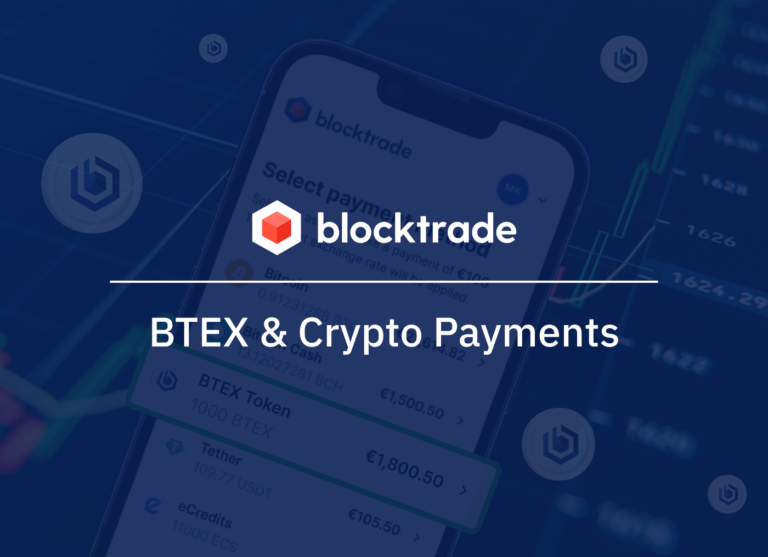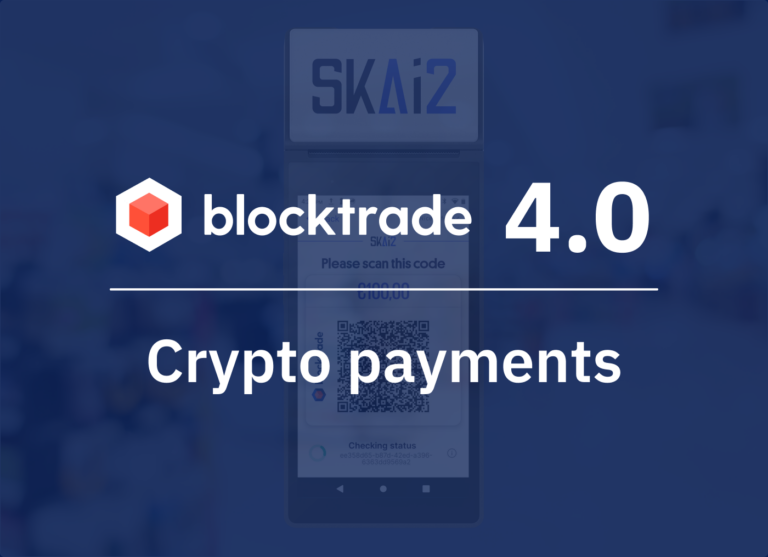If you want to send or receive cryptocurrencies and create a crypto wallet, you will be confronted with the concepts public key, private key, secret phrase and wallet address. You need to have a clear understanding of these terms to safely trade with and manage your crypto assets.
Don’t worry, however, these concepts are not as complicated as they seem at first! In this article, we will offer a simple, easy-to-understand explanation and a comparison with sending and receiving money in the traditional banking system.
First, let’s have a quick look at “cryptography” – after all, it is the domain to which cryptocurrencies owe their name.
What is Cryptography?
The term cryptography is derived from old Greek “kryptos” and means “hidden” or “write secretly”. The field of cryptography deals with how to encrypt and decrypt information as to keep information confidential and as to prevent unauthorized persons from accessing the information in transit. The domain was mainly pioneered and led by academic and military research.
For decades, encryption was done through using a secret phrase that sender and recipient used to encrypt and then decrypt the message – as the same secret phrase was used, this was also called “symmetric encryption”. However, this format has some downsides. For example, if any unauthorized person gained access to the secret phrase, they could not only access the information but impersonate the sender, which may cause even greater damage.
Asymmetric cryptography was pioneered in the 1970s and solved this problem by introducing the public-private key pair. The private key is a big, random prime number and can be used as a unique ID specific to a party to encrypt, decrypt or sign a message or file.
Cryptography and more specifically asymmetric cryptography was the forefather and technological foundation upon which Satoshi Nakamoto created Bitcoin, hence the name “cryptocurrencies”.
Crypto Keys Come in Pairs
Generally, you need to have a crypto wallet to keep your cryptocurrencies safe and secure. It’s like the wallet you use to keep your money. There are several factors you should consider to choose the best crypto wallet. But, there are other things you need to know about the wallet itself.
Every crypto wallet consists of a unique pair of public and private keys. There is a one-way-relationship between private and public key: through means of cryptography the public key for a private key is derived, hence a crypto-key-pair results.
However, it does not work the other way around. It is impossible to derive the private key through a public key. These key pairs allow sharing the public key which can be used by others to encrypt or verify information. This is what so-called asymmetric cryptography is all about and was a big breakthrough in encryption when first developed in the 1970s.
What is a Private Key?
You can use your crypto wallet to send and receive cryptocurrencies. The mentioned keys are the addresses to this wallet.
A private key is a secret code that is used to access a cryptocurrency wallet and authorize transactions. It is a long string of alphanumeric characters that is mathematically related to the public key. Think of it as a password to access your cryptocurrency funds. It is crucial to keep your private key secure and not share it with anyone.
Note: If someone gains access to your private key, they can steal your cryptocurrency funds.
The private key is to a crypto wallet similar to what an ATM PIN or Online Banking TAN is to a bank account. Every wallet has one or multiple unique private keys. It is only known to the wallet owner and used to prove he rightfully owns the account and contains funds and can send transactions.
Each crypto transaction sent is signed with the wallet’s private key – that private key however is not revealed to any outside parties. Just like you shouldn’t tell anyone your ATM PIN because they could use it to access your funds, you must keep your private key secure at all times because other people could use it to access and send (steal!) your funds.
Well, the private key is a randomly created 256-bit number that is impossible to remember, making it harder for hackers to access your wallet. However, it might also be difficult for the wallet owner to access it using only this code!
Generally, once the private key is generated, it can be stored securely in your wallet software or on a hardware device, such as a Ledger or Trezor wallet. But, it makes the wallet prone to hacks. That’s when the secret phrase was invented!
Note: You can buy cryptocurrency on Blocktrade and use it as your personal wallet, too.
What is a Secret Phrase?
The secret phrase is a string of words that is used to derive the private key. It is crucial to keep the secret phrase secure and not share it with anyone, as it is essentially the key to your crypto wallet.
Typically, loosing or forgetting the private key may lead to losing the cryptocurrencies inside it. The secret phrase is considered the backup mechanism to avoid this from happening. The secret phrase is also known with other names such as mnemonic phrase, backup seed, and recovery phrase.
A secret phrase is a collection of 12-24 words that store all the information required to recover and access all the funds of a crypto wallet. It can be used to derive the private key of the wallet as a secret phrase is a representation of the random number your private key is.
An example of a 12-word secret phrase could be the following:
donkey pony lizard comfort house frame ignore push glass cheap mouse secret
Wallet providers will advise users to write down the secret phrase generated by them and store it carefully, out of reach of third parties. If any other person gets access to your secret phrase, they could steal all your crypto funds stored in that wallet!
What is a Public Key?
Unlike the private key that you should only keep to yourself, the public key is the code you can give others to send you tokens.
The public key of a crypto wallet is derived from the corresponding private key using a mathematical function known as “elliptic curve multiplication”. It is a cryptographic code that is used to encrypt messages and verify digital signatures.
A public key is visible to anyone and can be shared with others to receive cryptocurrency payments. It is important to note that a public key is not the same as a wallet address, as some people may believe. A public key is part of the wallet address and is used to facilitate transactions, while a wallet address is used to identify a destination for cryptocurrency transactions.
What is a Wallet Address?
Digital assets and crypto funds are stored in, or rather assigned to, a wallet address. A wallet address is a unique identifier that is used to receive or send cryptocurrencies and can be linked to a bank account number/IBAN. Furthermore, its address can be shared with another person and is used to receive transfers of digital assets there.
The wallet address is mathematically derived from the wallet’s public key through a one-way function called “hashing”. The wallet address is a shorter representation of the public key’s final part and usually has a length of 160 bits.
If you want someone to send you cryptocurrency, such as 0.001 BTC, you will need to provide them with your wallet address, which is a unique identifier for a cryptocurrency wallet, and it’s where the sender will send the funds. It’s important to note that a wallet address and a public key are not the same thing, as the wallet address is derived from the public key.
However, it’s important to understand that while cryptocurrency transactions are not anonymous, they are pseudonymous. This means that anyone can view the transaction history associated with a wallet address using a blockchain explorer.
Wallet addresses typically consist of around 25 to 40 alphanumeric characters, including numbers, letters, and sometimes special symbols. The format of the address depends on the specific blockchain being used. For example, the first Bitcoin address ever created was:
1A1zP1eP5QGefi2DMPTfTL5SLmv7DivfNa
It’s safe to share your wallet address with others to receive cryptocurrency and allow them to view your transaction history. However, wallet addresses are typically not tied to a specific identity, so they don’t reveal who owns the wallet.
Exchanges like Blocktrade are required to verify users’ identities and postal addresses in accordance with KYC/AML regulations. As a result, an exchange wallet address can be linked to a user’s identity. However, this information is only visible to the exchange itself.
To learn more about different cryptocurrency wallets check out these articles:
How They All Work Together
Now that we have explained private key, public key, secret phrase and wallet address, let’s discuss how they go together. When you create a crypto wallet with a wallet provider, you will receive all these four elements. Here is the role of each of these 4 concepts for you as a wallet user:
- You create a private key when creating a crypto wallet. You never do anything with it consciously, but it is used to sign your transaction when you send crypto assets.
- You create a secret phrase and store it safely on a piece of paper. You use it if you ever have to restore your crypto wallet funds after losing the private key.
- The public key is used to verify that you are the owner of a wallet address and that you can receive crypto assets. You personally don’t use your public key when making or receiving a transaction.
- You tell your wallet address to the sender if you are to receive a transaction or use it if you yourself send money there from another wallet of the same cryptocurrency. Likewise, you need the wallet address of a recipient if you are to send crypto assets to them.
Bottom Line
Several codes are used to keep your cryptocurrencies safe in your wallet and yet make it easier for you to send and receive tokens. You should keep some of these codes to yourself and keep them away from anyone. These codes are private keys and secret phrases. On the other hand, you can give others your public code and wallet address to direct them to send tokens to your wallet. Understanding the relationship between these elements is crucial for ensuring the security of cryptocurrency holdings.
You can sign up on Blocktrade to buy cryptocurrency and access the most valuable crypto assets.
FAQs
How to Get a Private Key from a Wallet Address?
To get a private key from a wallet address, you will need to access the wallet software or service you used to create the address. The specific steps may vary depending on the service or software you use.
No. A public key and a wallet address are not the same, but they have somethings in common. Both are related to cryptocurrency transactions. Furthermore, unlike private key and secret phrase, public key and wallet address are shareable.
The main difference between them is that a public key is used to encrypt and verify transactions, and a wallet address is used to identify the destination or source of a transaction, and it can also be shared with anyone. In short, we can say a wallet address is a door and the public key is the label on it, which shows who is the owner of the house.
A private key is not the same as a wallet address. A private key is used to sign transactions and prove ownership of a particular wallet address. You can share the wallet address with others but you should never even reveal your private key to anyone.
An Ethereum address is a unique identifier used to send and receive Ether and other Ethereum-based tokens. It is a string of 42 characters starting with “0x”.
An Ethereum address is not the same as a public or private key, but it is derived from a public key using a specific algorithm. The public key is, in turn, derived from the private key.







